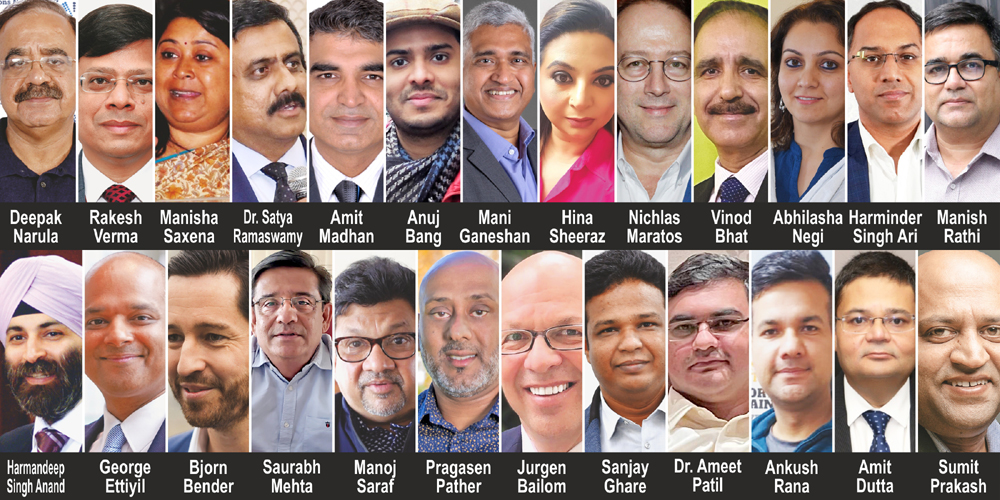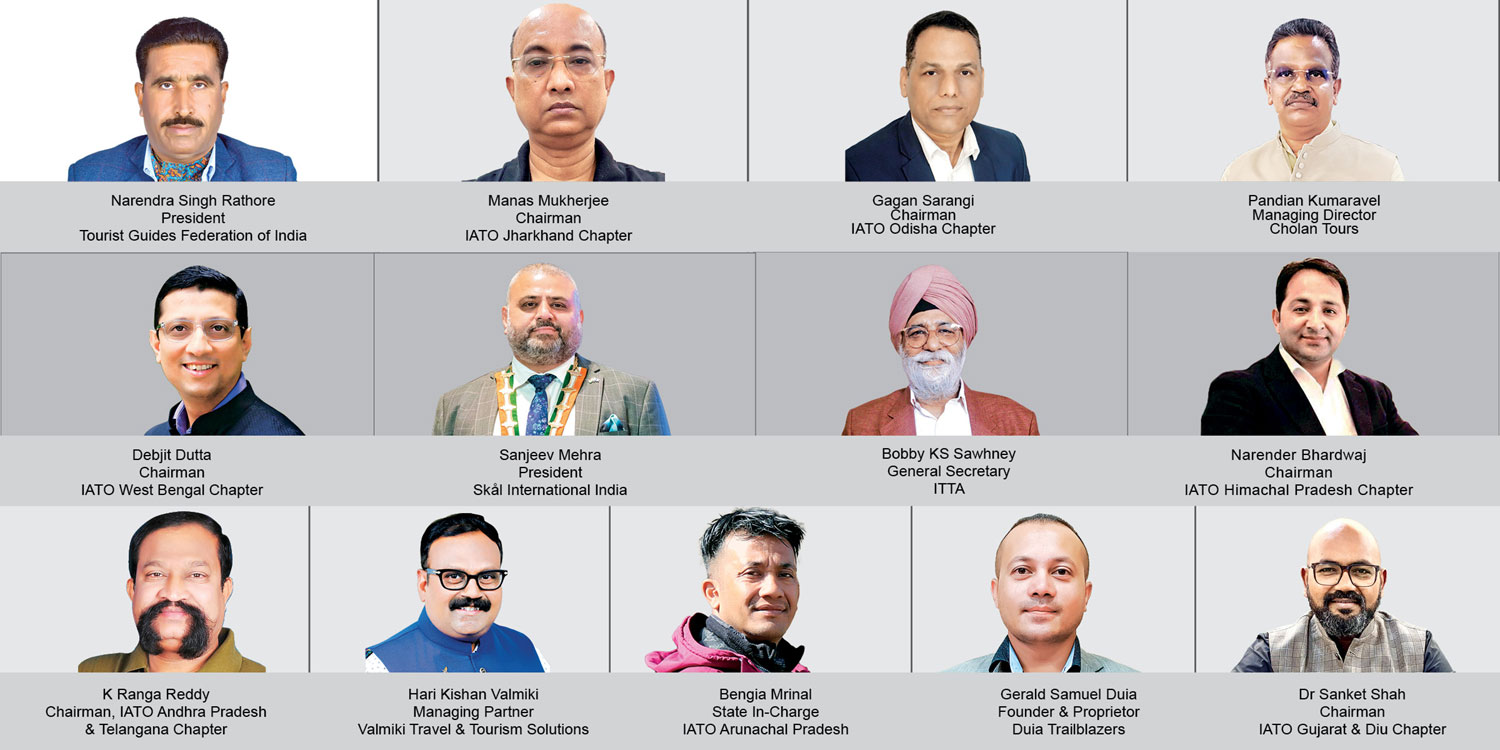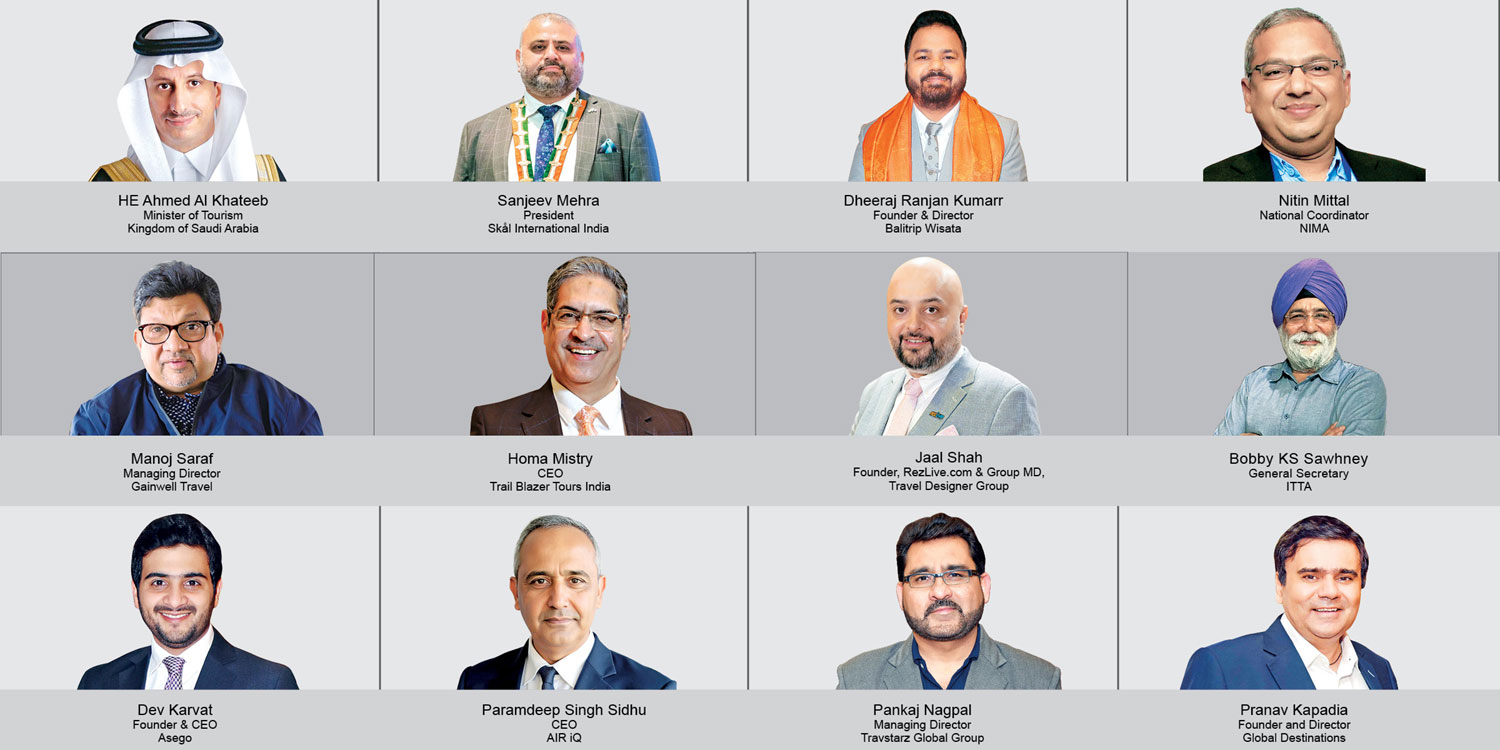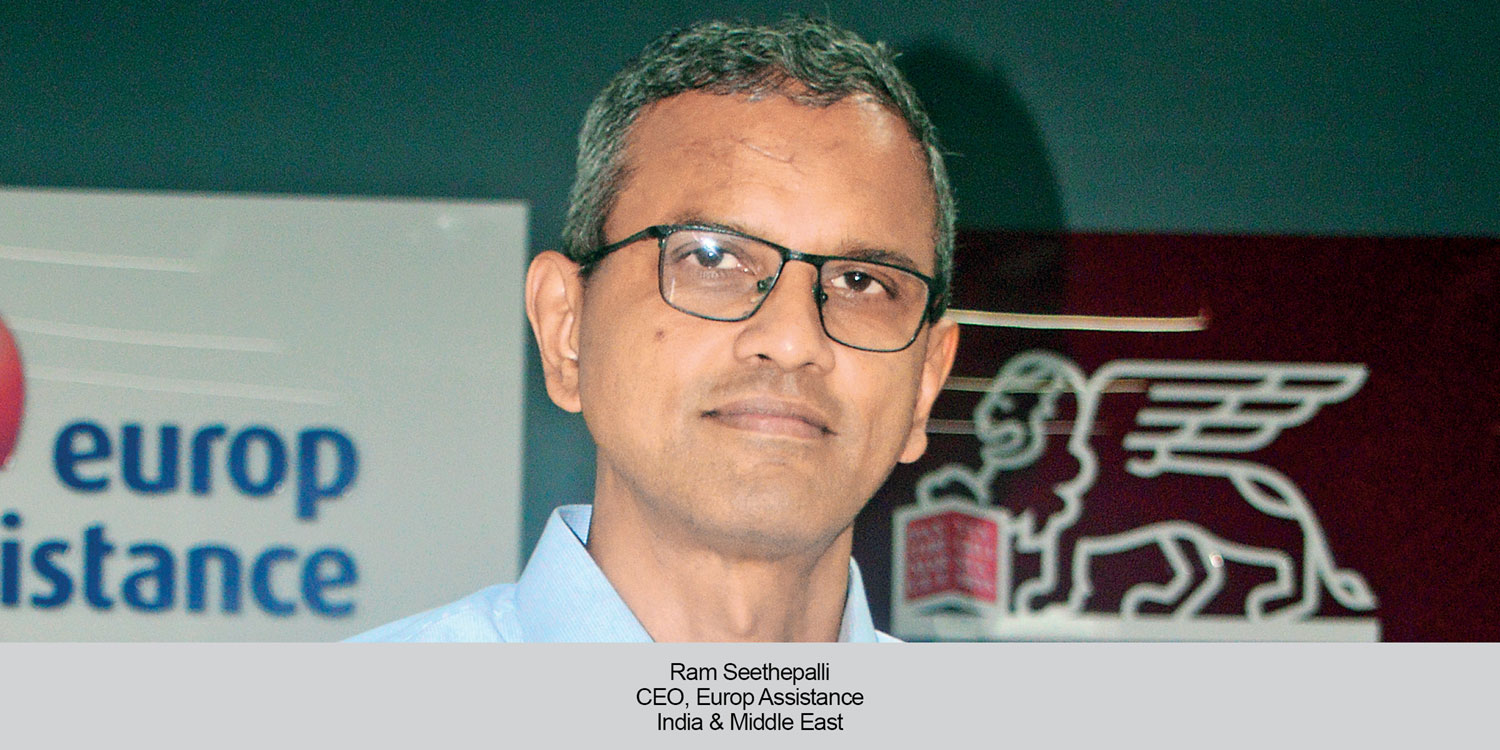Can we make the tourism industry a dynamic one? Yes! And we must. The best way to get there is using technology. Digital advancements are going to be the key enabler of efficiency and market dominance, and innovative SaaS start-ups that build the right solutions will be a good investment option.
TT Bureau
There is tremendous dynamism in the Indian start-up arena today. With the year ahead expected to push the Indian economy towards a strong revival, there is likely to be good growth in most sectors. However, the biggest beneficiaries will be industries with faster and widespread digitization. Similarly, infrastructure development is bound to get a big push from the public as well as private sector in the next few years. Another high potential investment area will be the SaaS (software as a service) companies; today, the Indian domestic SaaS market is witnessing a rapid surge in demand from almost every segment.
Artificial Intelligence (AI), Customer Relationship Management (CRM) and ChatGPT, the latest buzzword, is set to revolutionise businesses, including travel industry. The post-COVID world is not only learning about these tools, but also trying to integrate them to their businesses, both to reduce costs and manage manpower.
Times are changing and travel is changing with it. To delve deeper, TRAVTALK speaks to key decision makers in the tourism and hospitality industry, as well as travel technology providers, to get their perspective and to understand what they are doing towards adopting technology in their businesses.
Deepak Narula, Managing Director, GRNConnect
Technology is one big enabler in the travel industry in today’s time. It helps us to improve our product, distribution and also aids in supply side of the business. By embracing technology, one can move from being a small-town travel company and become a global company. There is no end of innovation in technology and new products are being introduced everyday to make it easier for our travel partners to do business. There are Artificial Intelligence (AI) tools available to study the pattern of future bookings, current trends, etc. in the travel industry. Technology helps us to plan our product line accordingly. We at GRNconnect are constantly working towards bringing the best in technology to our travel partners at every stage. Very soon, we will be launching a series of new features, which will further improve the experience of booking on our portal www.GRNConnect.com.
Rakesh Verma, Additional Secretary, Ministry of Tourism
Digital and technology remain an important area, where we need to build competencies and capabilities for marketing and promotion of tourism. We are looking at over `1000 crore to be given to the National Tourism Board of India for implementing the marketing and promotional campaigns. It will cover different channels and the focus will be on country specific strategies and on digital platform. Digital marketing will be a very important pillar of our approach and there is a significant allocation for digital marketing in the next two years. We’ve engaged two agencies— one for branding and one for providing a very strong adobe platform. Our website portal will also undergo a massive change and there will be many digital marketing efforts from our side.
Manisha Saxena, Director General, Ministry of Tourism
In earlier days, when you planned a trip, you consulted a travel agent or you spoke to someone who has been on that side of the world. Now everybody just picks up their phone or laptop and browse. Hence, a digital presentation of your strengths is very important as a destination and a lot of states have done some very good work on it. Almost everyone has a website and a tourism app. While digitalization is challenging, it’s important to know how to combine all of it with the places where all the action is. We are working very keenly on it, and we would bridge that gap. We are leveraging the strength of social media and using digital media, AR, VR, evidence-based studies from the visitors from various countries. It will throw up some very good insights.
Dr. Satya Ramaswamy, Chief Digital & Technology Officer, Air India
We want to create a sustainable competitive advantage in our operations by adopting the world’s best in digital technologies. The scope of the technology transformation at Air India is extensive and covers every aspect of the airline including commercial, engineering, operations, ground handling, finance, human resources, and corporate functions. We are empowering employees across the company, ranging from frontline flying staff to ground crew with the best technology capabilities to help them excel at their jobs. We are adopting a cloud-only, mobile-friendly, design-rich, AI-infused, digital-first approach to all our technology initiatives that we are executing with speed. The modernisation of Air India’s digital & technology landscape will benefit group airlines including LCCs.
Amit Madhan, President & Group Head – Technology & ESG, Thomas Cook (India)
Technology is a crucial part of the travel industry. It helps businesses run efficient day-to-day operations while constantly improving customer experience. Organizations across travel & hospitality sector now have access to real-time data from multiple sources to help improve demand forecasting, guest profiling and resource planning. AI & Machine Learning have elevated to an advanced level of sophistication. With the introduction of Chat GPT and generative AI, the industry is rapidly adapting and scaling up its tech advancements to offer customers with innovative solution/services. At Thomas Cook, we have chatbots that are live on our websites, we are exploring Chat GPT and generative AI to use them to our advantage & further strengthen our tech prowess.
Anuj Bang, CIO, Stuba.com
With huge digital advancements over the past two decades, it’s almost impossible to operate now without technology, no matter the size of travel business. As well as online/mobile presence, it covers a broad spectrum of internal tools and data handling from an itinerary builder/ quotation generator to mid-office platforms handling finance and CRM functions; to more clever reporting, analytics & AI. AI is the next frontier everyone is trying to master. Already some great strides have been made in adopting AI across different verticals of travel business, including here at Stuba – be it for curating right product for the right customer, marketing, customer services, etc. There is also endless scope for back-end process automation by using Robotic Process Automation (RPA).
Mani Ganeshan, Global Head, Engineering, Travel Distribution & Centre Head, Amadeus Labs
Personalisation has become the key to success in the industry, and with the integration of IoT, VR, Robotics, and AI/ML, we can facilitate this transition seamlessly. The use of data analytics and AI allows us to gain insights into guests’ preferences, enabling us to tailor services accordingly and provide recommendations that lead to higher guest satisfaction and loyalty. Technology also improves operational efficiency by automating tasks, reducing human error, and freeing up staff time for more critical tasks like guest service. It creates new revenue streams and opportunities for upselling. There are many hotels owned by franchisees. Our solution brings innovation to this industry by offering Hospitality Solutions that operate on the Cloud.
Hina Sheeraz, Director, Sheeraz Tours
Technology, especially AI will determine the holiday preferences of customers in the future. Powerful AI platforms will help holidaymakers select destinations & attractions offering the best discounts on limited budgets. Technology has transformed the travel industry in numerous ways and is the way ahead for not only booking tickets but planning an entire holiday. Some of the ways that technology is shaping the future of travel include online booking; mobile apps; AI, which is making travel more personalized and efficient; and VR, which is transforming the way people research and plan their travel experiences. Overall, technology is making travel more convenient, efficient, personalized, and sustainable, and it is likely to continue shaping the way we travel in the future.
Nichlas Maratos, Vice President, Commercial, Dusit Hotels & Resort
Technology plays a significant role in enhancing both the booking and guest experiences. By removing friction from the booking process, technology can simplify travel arrangements, from airfare to accommodation. It can reduce the time spent on administrative tasks by hotel staff, allowing them to focus on providing quality service to guests. By leveraging technology, hotels can streamline their operations and allocate more time to interactions with guests. This, in turn, can result in a more personalized and enjoyable experience for travellers. Ultimately, technology can enhance efficiency, reduce costs, and improve the overall travel experience for both guests and hotel staff. The use of technology in travel industry is key to create memorable & satisfying experiences for travellers.
Vinod Bhat, Chief Information Officer & Chief Ethics Counsellor, Vistara
The swift pace of technological advancement, increased penetration of internet & smartphones are revolutionising the industry and altering the way we travel. From choosing a destination to booking hotels to flying, every aspect of travel has been witnessing increased utilisation of technology, which promises even more interactive and exciting experience. Mobile Application, virtual reality, AI chatbots, voice search, robotics, contactless payment, biometric based touchless services, IOT, 5G and Edge computing are some of the noteworthy technological interventions that are playing an increasingly active role in the industry today. More and more travellers are opting for online, self-service tools for seamless end-to-end transactions, including ancillary service bookings.
Abhilasha Negi, Co-founder, SanKash
COVID accelerated the demand for technology and adoption for a digital transformation. Today, as the industry rebounds, this transformation becomes more vital than ever. Currently, travellers demand and use technology right from the start of their journey by using mobile check-ins to ending their travel with online social media posts and reviews. Travel & hospitality brands therefore have opportunity to distinguish themselves by adopting digital transformation. AI and Chatbot based bookings and reservations, contactless payments and alternative payment methods, personalization of travel experience using big data and predictive analysis as per traveller’s past data and mobile first technology for booking and contactless experience, NFTs entering the industry.
Harminder Singh Ari, Vice President, India Sales, WebEngage
Emerging technologies can transform the industry by improving efficiency, personalization, sustainability, and overall customer experience. IoT devices, like smart locks, sensors, & wearables are being used to enhance security, improve communication, and personalise guest experience. Blockchain is being used to enhance security, streamline payment processing, and facilitate transparent and trustworthy transactions. Robotics technology is being used to optimize and streamline human effort by automating repetitive tasks such as room service, cleaning, and luggage handling, etc. We have introduced a host of innovative features in our tech-stack like Recommendation & Catalog, App Personalization, and Predictive Segments & Engagement Score, etc.
Manish Rathi, CEO and Co-Founder, IntrCity SmartBus
Tourism growth is significantly dependent on ease of intercity mobility especially Tier II & III cities connectivity with nearby metros. The Indian National Highways has seen 2X growth since 2011 and will be near 3X by 2025 with 200K KMs in length. The highway expansion has enabled growth on private intercity bus market which has already grown more than 2X between 2017 to now. Intercity buses are a $30 billion industry servicing over 40 million travelers every day, serving as a critical enabler of economic growth. Over the years, technological advancements have helped travelers & SME bus operators plan their trips in a more efficient way. With the help of telematics backed mobility platforms, ‘Connected Bus’ is helping SME bus operators provide better experience to travellers.
Harmandeep Singh Anand, Managing Director, Global Panorama Showcase
Technology is the only way forward. There is no other way for anyone. Even if you are a small organization, you need data and net connectivity to stay connected with your vendors and clients. Chat GPT is one of most recent innovations. At GPS itself, we have tied up and have brought in quite a few products. We have Next Cellular that offers e-SIM cards. Then there is another company called Tourways, which is giving complete CRM solution on a tech based platform with more than 500-600 IDs are readily available and the queries of smaller buyers being addressed and answered. In fact, when COVID hit, we were the first persons in the country to shut shop and start work from home as everyone in our office had a laptop and data connectivity.
George Ettiyil, Senior Director Sales, (South Asia), Lufthansa Group
Back in October, SWISS became the first airline in the world to deploy the innovative AeroSHARK technology on its passenger services. The transparent AeroSHARK film which has been applied to its aircraft’s fuselage and engine nacelles replicates the hydrodynamic skin of a shark to reduce aerodynamic drag and, as a result, lower both inflight fuel consumption and carbon dioxide emissions. The annual CO2 emission savings of this new technology is up to 15,200 tonnes. We have not spared any effort to halve our 2019 net CO2 emissions by 2023 and aim to achieve net carbon zero by 2050 through a variety of measures. With Lufthansa Group having committed to €2.5 billion SAF purchase in next 3 years our airline group is the largest SAF customer in Europe.
Bjorn Bender, Chief Executive Officer, Rail Europe
We sell one ticket every 12 seconds, which is a result of the technology that we have developed. Everything is linked to technology today and that is why our current focus is to ensure that all travel agents have access to our booking portal ERA – Easy Rail Access – so that they can easily make booking for all the European train journeys. Travel agents can book through our GSAs, as most of them have integrated Rail Europe APIs in their booking platforms. This is also why Rail Europe’s B2B platform is the technical heart of the company. We are developing it currently because we are increasing offers month by month. We see demand for newer offers in terms of technology is increasing. We are integrating seat reservations for Eurail passes.
Saurabh Mehta, Co-Founder & Mentor, Tourwiz
The pandemic forced businesses to rethink their strategies and adapt to a new world of touchless interactions. One thing that has emerged as a clear winner in this new landscape is technology. With its help, hotels, and tourism companies can streamline and automate almost all aspects of their business. This not only increases efficiency and reduces staff workload but also enhances the overall customer experience. But it’s not just about automation – technology can also provide a more personalized experience for customers. Through data analytics and AI, companies can gather information on customers’ preferences and tailor offerings accordingly, resulting in increased customer satisfaction. Virtual and augmented reality can provide immersive experiences for travellers.
Manoj Saraf, Managing Director, Gainwell Travel & Leisure
In today’s time, manpower is the biggest cost for the travel industry and the only way to manage the same is by adopting technology for our businesses. The travel industry is taking a major leap forward in developing and adopting technology. While on one hand, airlines are moving to NDC, on the other, consolidators are moving to self-booking engines enabling travel agents to book and pay online. Agents at their end are using various tools to automate itinerary building and saving time on customised products for their clients. Gainwell Travel & Leisure is also adopting visa & data management tools and enabling our corporates to book tickets on their own. I believe that technology is the only way forward to scale up and survive in any business, and it is the only way forward.
Pragasen Pather, Chief Information Officer, Sun International
Our industry has experienced a significant impact over the last few years due to the pandemic. However, it has also highlighted the need to accelerate our focus on digital capabilities so we can enhance our guest experience. This includes making use of data and technologies to improve existing processes and provide a tailored and personalised experience. Virtual queues, keyless and cashless/ contactless payments are some of the enhancements we are looking at currently. While these might be basic in need, it still requires some thought as we have to ensure security of our customer data is top of mind. These services are complimented by our existing mobile app which was launched in 2022. We have seen a huge increase in conferencing demand.
Jurgen Bailom, President and CEO, Waterways Leisure
Technology, as we all know now more than ever, is humankind’s greatest enabler and especially so at present. It has helped connect, remain connected, produce results, manage inventories, communicate effectively and a lot more. Our human resources are our pride and asset. Empowering lives and livelihood has always been a top of the line priority for us at Cordelia Cruises. Hence, now with ever evolving technology, we as an industry are able to not only reach that many more in our audience but also cater to them in a much more effective and efficient manner. Whether it is learning about cruising, making an inquiry, confirming a reservation, arriving at the port, coming on board, accessing our services and offerings on the cruise, every single step of the way, we have technology to support our experience.
Sanjay Ghare, Founder & MD, Vervotech
Software as a Service (or SaaS) products are giving companies an edge. Tourism industry is going through digital transformation. Pandemic has pushed a transformation further. SaaS-based solutions for TMCs, B2B, B2C, DMCs like white label solutions, payment gateway aggregations, supplier aggregations helping travel businesses to leverage it for digital transformation. Today’s travellers need everything at their fingertip and need flexible options, ability to research and personalized recommendations, which businesses are able to offer with SaaS solutions. Vervotech offers a unique solutions to travel companies around the world. Every travel business aggregates hotel rates from multiple suppliers in order to offer the best rates. This results in duplicate hotels, rooms, rates on their website.
Dr. Ameet Patil, Founder & CEO, Ecobillz
Depending on what type of a trip it is, the client will need multiple types of services for which he may keep on using different avenues of payments. Technology like Ecobillz is an innovative digitization platform that uses AI to capture, read, and accumulate documents and data in real-time for managing the system using advanced business process automation and to churn this data for generating valuable insights for the business. Ecobillz is aiming to build up a way for business operations without the usage of paper and make contactless business easy. AI is an essential element that is influencing the way the hospitality sector operates, aiding in streamlining key business procedures and assisting in strategic decision-making, with minimum turnaround time for the business owners.
Ankush Rana, CEO and Co-Founder, ParaBooking
Like any other business, to implement processes or to function seamlessly, technology has to be integrated into your business. It has become inevitable. We have become dependent on technology and rightly so as it improves efficiency, saves time, and brings in standardization and consistency. Our adventure and tourism industry is no exception, and we saw a boost in technological advancements during the pandemic when people could not travel. We witnessed a boost in travel technology trends booming in 2022 be it augmented reality, virtual reality, or IoTs. In the industry, we are witnessing adopted contactless check-ins/ payments. Most groups are using property management software on cloud, in an attempt to be more sustainable and shed light on our locals. We also cross sell localized services.
Amit Dutta, Managing Director, BLADE India
The real game-changer is Urban Air Mobility (UAM). The movement of people and cargo using electric vertical aircrafts is the new way forward. With eVTOL manufacturers like BETA, EVE, Jaunt already in successful flight-testing phases, and support from battery manufacturers and policy makers, governments worldwide are recognizing UAM as the next big disruption in travel. UAM not only reduces travel time on roads, but also enables critical medical evacuations within cities, saving lives. Moreover, it improves cargo deliveries, making it more efficient than ever before. Technology is making our lives easier in every aspect, and UAM is at the forefront of this transformation in the tourism industry. The UAM industry is experiencing an unprecedented wave of technological innovation. We are grateful to the government.
Sumit Prakash, Country Director, India and South Asia, Collinson
It’s important to ensure that each journey is made seamless and stress-free. Globally, we have recently added new digital services such as smart queue management and at-table ordering to our owned and networked lounge portfolio. We have also increased our investment in Servy, the largest e-commerce platforms in airports worldwide, to provide a more connected, contactless and seamless airport experience. India has been, and will continue to be, an important market for us. Last year, we launched Priority Pass Access India, a dedicated domestic lounge experience program that enables eligible cardholders to enter over 50 lounges across major cities in India by simply swiping their payment card. We formed two strategic partnerships in India. The first is with PineLabs, a domestic platform.
 TravTalk India Online Magazine
TravTalk India Online Magazine





